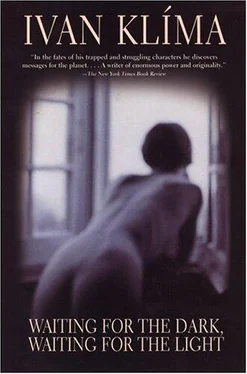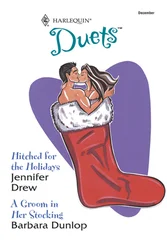A child was crying somewhere in the house. Alice had become distracted.
'Go and feed the children. Just ignore me.'
'You can come along.'
'I'll stay here. I'd like to take a good look at this mouldy fresco.'
He was alone. He could hear quiet music coming through the wall. The dogs were barking outside. What was he doing here? Why had he come?
Because he didn't have a home of his own.
He went from home to home, from castle to castle, like a wandering minstrel. Except that the minstrel had a lute and a song to offer. He had nothing.
What could a wandering photographer offer?
To take a picture.
A picture of what?
A picture of everything that could be captured on film: a hand, legs, clouds, snakes, banners, mouldy goddesses, presidents, faces, truncheons, naked bodies, flowers, hypodermic needles, fences, volcanic explosions.
What was a picture?
A picture was a motionless record of motion. An arrested representation of life. A picture was the kiss of death pretending to possess immutability.
What if he were just to leave quietly? After all, he had dropped in uninvited and he knew he didn't belong here. But where did he belong?
On a pile of old pictures.
He was lying to himself. He hadn't come because he was looking for a home. He'd come because he was looking for an alibi. One day he would be able to say: I was never ashamed of my friends. That is, if there was anyone to say that to. If anyone would listen. But he was still lying to himself. He was here because he needed, every so often, to see Alice.
Venus was looking at him tenderly. Her long blonde hair was waving in the wind, and flowers were drifting down around her. Suddenly he heard a stifled sob. He jumped. 'What's going on?'
Silence.
'Were you crying?'
Silence. A sob.
'Why are you crying?'
'You said everything would be different when children came.'
'Is that why you're crying?'
'But darling, what if they don't come?'
'We won't think about that now.'
'They won't come. I wanted to tell you anyway. You have to know. We would be alone.'
'What are you talking about?'
'If they came, it would be a miracle.'
'Are you sure about this?'
'I know it.'
'I didn't mean what I said about children. I never imagined I would have children. I used to imagine a lot of things, like being an Indian chief, but never that I would be a father.'
'You're only saying that.'
'I say it because I mean it.'
'But one day it will really get to you.'
'I don't know what will happen one day. Why should we think about it?'
Two months later Albina announced to him that she was pregnant.
Alice came to get him. She had changed into a dress of Indian cashmere, obviously for him. Perhaps she wasn't happy with Peter. Perhaps she hadn't been happy with him for a long time. Or she was bored with their quasi-exile. Something had happened between them, something that you don't even confide to a friend. But what kind of friend was he anyway? Chocolate bars for the children and the occasional visit couldn't hide the fact that he'd sailed away to another continent.
'They've left,' she announced, referring to a group of inspectors, whom he hadn't seen and didn't care about.
'That dress looks good on you,' he said. 'You're more and more beautiful all the time.'
'Thank you for saying so, but I know it's not true.'
Then he sat with her and Peter, his fellow escapee, his former partner in crime, in a small room in the castle. They drank red wine, and he tried to pretend that he felt a kind of closeness, a common bond with his friend, whom fate, or rather circumstances, had hounded all the way to this remote castle with mouldy walls and a leaky roof. Yet he felt neither closeness nor a common bond, just an uncertain sense of guilt, shame and envy. He needed to justify himself to Peter and even more to Alice. He told them about his problems in the department, where everyone was just waiting to pounce on everyone else's mistakes in the
hope of gaining promotion; about the director of programming who flaunted her authority by forbidding women to wear short skirts; about the chief producer who knew that if he blocked a good piece of work, nothing would happen to him, but if he failed to block something that might upset a minister, or an under-secretary's wife, he could lose his job and so, just to be sure, approved nothing but ineffective and tedious mediocrities. Pavel's film on a psychiatric hospital had been banned because it might have been interpreted as an allusion to the country that ruled over them, where they sent their political opponents to such places. They even tried to block his film on carved nativity scenes because they said it endorsed religious sentiment. The film had taken almost a month to shoot, and the commentary was written by an officially recognized poet. Fortunately for the film, the official poet was very put out by the ban and complained. The censor then ordered him to tidy up the script. Instead of 'Jesus' he was to say 'the little child', and instead of 'the Virgin Mary' he was to say 'the mother of the child'.
He didn't mention his ineffective and tedious film about the president, which they had just finished editing.
He noticed that Peter was restlessly drumming his fingers on the table-top. 'I can see what a bore it must be to argue with the censors,' Peter said. 'But what I don't understand is why you hang on.'
Yes, faced with Peter, he had no defence, and should never have mentioned his problems. At the same time Peter's self-righteous superiority, which was possible only because he had found a way to exist on the margins of society, irritated Pavel. 'I got myself into it. Yes, I could have tried working in some castle and waiting for things to change. But I was afraid I'd forget how to hold a camera.'
'Aren't you afraid you'll forget where you are?'
'What do you mean?'
'I'm going to say this because no one else will. We sometimes see your films. There's nothing to them except a little technique. I mean, you must feel that yourself.'
'I do as much as can be done.'
'Exactly. And because not much can be done, you fool
around and kid yourself that it hasn't got anything to do with you.' Peter was frowning sourly.
'Are you saying I should have found myself a castle too?'
'What kind of question is that? You wouldn't dream of it. You have more important things to do. Like showing that anyone who dares to make a protest, or isn't completely happy here, is a criminal and a threat to the common good.'
If conversations like this had to happen at all, they should be private, between the two of them. But because Alice was here, Pavel said, 'I'm not trying to show anything of the kind. I can't help what they decide to broadcast. As far as the demonstrations are concerned, even if I sometimes get to shoot them, I'm never in on the final edit.'
'No, you just give them the material,' Peter said.
'Yes, but scissors can turn a demonstration against something into a demonstration for it, and vice versa.'
'Don't hide behind someone else's scissors. You must know when you're filming what someone is going to do with those scissors.'
'That's how it is. I can just mark time where I am, leave completely or turn material over to them and let them edit it. But I take pictures just like people do all over the world. I know that at least something of what I do will survive. One day it will make interesting documentaries.'
'One day, maybe. But people are watching this stuff now, and you're helping to mislead them.'
'So what? Do you think this is the only place where people are misled? Do you-think that in other countries they churn out masterpieces? The minute you turn on the box over there someone's murdering somebody else or shooting them or kicking them when they're down. And those music videos! Once you've spent a few hours watching them, you're ready to believe that the world is a writhing, screaming, absurd madhouse. Of course you can always switch channels and watch a porn film or a horror show or look at piles of dead bodies, victims of the Mafia or terrorists or revolutionaries or brave soldiers who have just staged a coup d'état. And you can always find an ad
Читать дальше











